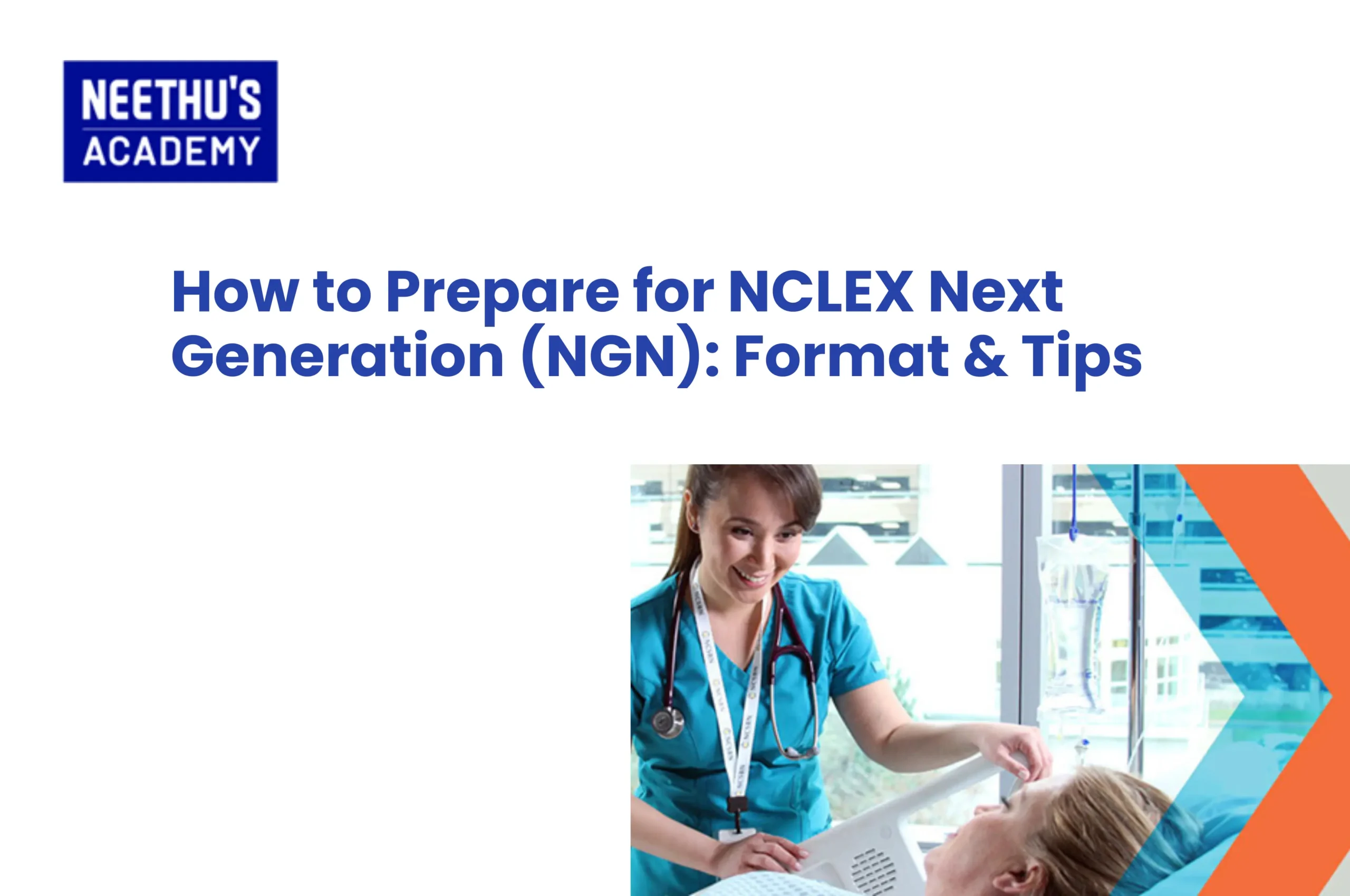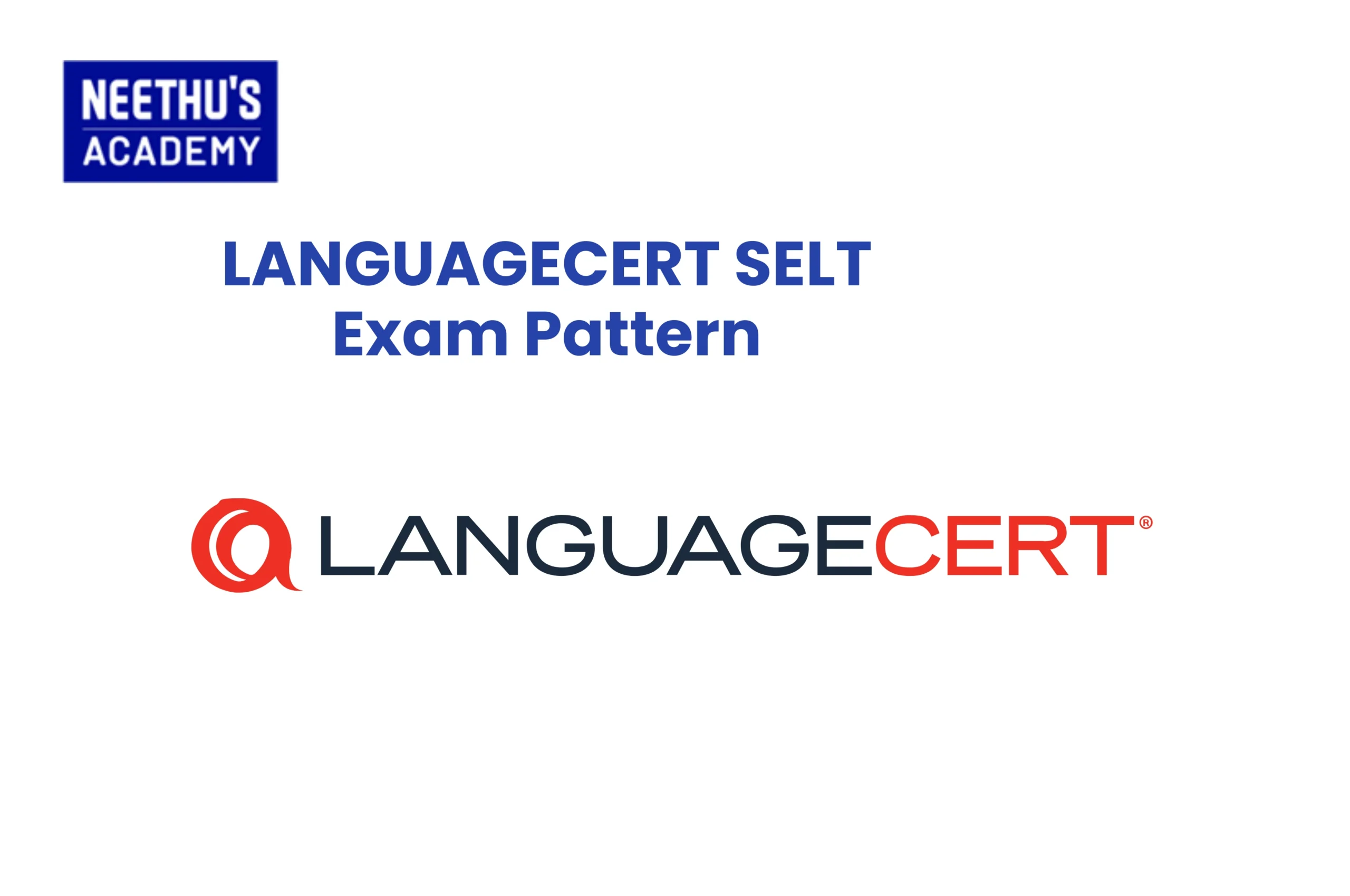
Dreaming of working as a nurse in Canada or the USA? This step-by-step NCLEX guide for Indian nurses covers eligibility, registration, fees,…

The NCLEX Next Generation (NGN) is the new iteration of the nursing licensure exam, designed to assess a candidate’s ability to make effective and safe clinical judgments.
While the old NCLEX had more emphasis on recalling information and mere application, the NGN places more importance on clinical judgment, something that is a vital skill for nurses in actual healthcare practice.
If you are a graduate nurse who is gearing up for your license, it is important to know the NGN exam format, its new question types, and the best strategies for NCLEX Next Generation preparation in order to succeed in 2025 and beyond.
The NCLEX new changes 2025 represent a significant move from how the exam is administered and graded. The primary aim is to quantify the extent to which nurses perform in actual clinical cases instead of merely testing theoretical knowledge.
The following are the principal changes:
Emphasis on Clinical Judgment – The NGN measures decision-making in complicated health situations.
New Question Types – In contrast to the previous multiple-choice-dominant style, NGN launches case studies, bow-tie, and trend questions.
Scoring System Revision – You are now given partial credit, meaning even when you don’t get all parts correct, you can still be credited for good steps.
Exam Duration – The NGN exam continues to last 75 to 145 questions, but the time is still 5 hours, including breaks.
Improved Reflection of Practice – The test more accurately reflects actual clinical decision-making, better preparing candidates for real nursing duties.
These improvements focus on keeping only those candidates who are able to show safe, evidence-based, and practical judgment out of the nursing profession.
* Candidates are given a patient case involving health history, lab test results, and progress notes.
* You will then respond to several questions associated with the case, with attention to assessing, planning, and prioritizing care.
* These simulate actual nursing practice, where you have to make decisions step-by-step.
* This is perhaps the most debated NGN sample questions format.
* It resembles a bow-tie diagram where you have to choose right answers for three categories:
* Condition or Issue
* Actions to Take
* Potential Outcomes
* It tests your ability to relate symptoms, interventions, and anticipated outcomes.
* Trend questions give information over time (such as a patient’s fluctuating vital signs, lab results, or progress notes).
* You should be able to identify patterns, spot concerns, and make clinical decisions.
* This mirrors how nurses follow patients throughout a shift and modify care accordingly.
These types of questions may seem daunting at first, but with purposeful practice, you’ll know how to tackle them systematically.
Since the NGN is application-oriented, your preparation needs to extend beyond memorization. The following are strategies that have been tested to enhance your preparedness:
The NGN draws from the CJMM model, whose six steps include recognizing cues, analyzing cues, prioritizing hypotheses, generating solutions, taking action, and assessing outcomes. Repetition of these steps will enable you to respond to NGN questions logically.
The more NGN sample questions you try, particularly case-based ones, the sooner you’ll become proficient at analyzing patient situations. Begin with shorter cases and then progress to more complicated ones.
Know your weak areas—like pharmacology, lab values, or prioritization—and shore them up with extra studying.
Don’t merely read notes—reword ideas, explain them to classmates, or make flashcards. This enhances retention and enables you to apply knowledge.
Take timed practice tests to develop endurance for the 5-hour NGN exam format. This will reduce test-day anxiety and enhance pacing.
Keep in mind that you would still require a solid base in medical-surgical nursing, pediatrics, pharmacology, and mental health. Combine theory with practical critical-thinking practice.
To be successful in NCLEX Next Generation preparation, the proper tools are just as vital as study. Here are some resources you may count on:
Official NCSBN Website – Offers complimentary sample NGN questions and exam news.
NGN Prep Books – Select current NCLEX review books that contain Next Gen case studies and bow-tie questions.
Online Question Banks – Sites such as UWorld, Kaplan, and Archer Review now have NGN-style practice exams.
Simulation Labs – If available at your nursing school, utilize simulation exercises that replicate actual patient care.
Study Groups & Coaching – Get comprehensive study groups focusing on NCLEX or join an academy that specifically offers NGN exam format training.
Balancing self-learning with directed practice helps you tackle all aspects of the new exam.
The NCLEX Next Generation is the revolutionary change in testing nursing candidates. With its emphasis on clinical judgment, bow-tie questions, case studies, and trend analysis, the NGN more accurately portrays real-world nursing practice.
Success is a matter of knowing the NGN exam format, being current on the NCLEX new changes 2025, and having adequate practice with NGN sample questions. By integrating active learning, systematic practice, and the proper resources, you can confidently enter the exam and advance your nursing career.
The NGN emphasizes clinical judgment with new question types, whereas the older NCLEX had greater use of multiple-choice questions.
NGN means Next Generation NCLEX.
The NGN exam is 5 hours long, including breaks.
The NGN is said to be harder because it focuses on critical thinking and decision-making rather than memorization.

Dreaming of working as a nurse in Canada or the USA? This step-by-step NCLEX guide for Indian nurses covers eligibility, registration, fees,…

NCLEX Exam for Nursing explained: Learn about eligibility, registration process, fees, exam format, and preparation tips for 2025. Whether you’re an RN…

The DHA vs HAAD exam 2025 comparison helps healthcare professionals choose the right UAE medical licensing path. This guide explains eligibility, fees,…



WhatsApp us